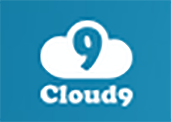Top 10 Tech Tools for Remote Workers and Distributed Teams

Welcome toTop 10, Recruiter.com’s weekly rundown of the best of the best in recruiting in the job market ! Every Friday, we release a list of some of our favorite people, things, and ideas dominating the industry. From awesome tech tools and cool companies to great books and powerful trends, no stone in the recruiting space will be left unturned.
This Week: Top 10 Tech Tools for Remote Workers and Distributed Teams
More and more people are working remotely, whether as freelancers, as part of fully distributed teams, or as employees granted flexible schedules and workplace options. Given that remote work can boost productivity, lower employee stress, and bring a number of other benefits, it’s no surprise this work arrangement has been growing in popularity.
However, working remotely isn’t all sunshine and rainbows. Just like traditional, in-office employment, remote work comes with its own set of challenges, including the big two of communication and collaboration difficulties.
That’s why we decided to compile the following list of 10 remote work tools we really like. Some are meant for managing distributed teams, while others can be very useful for freelancers and independent workers, but all can help ensure that remote workers stay productive, connected, and motivated. Check out all 10 now:
1. Google Docs / Drive

Chances are you already know everything you need to know about Google Docs and Google Drive. These are some of the most widely used and convenient solutions for cloud storage and document creation today, especially considering they’re fully integrated with Gmail. You can use Google Docs to create spreadsheets, text documents, and slideshow presentations, and you can store them all in the cloud on Google Drive. It’s incredibly easy to share and collaborate on files with team members and clients through Google Docs and Drive. No matter how far apart you are, you and your compatriots can work on the same documents together in real time.
2. Trello

There are plenty of online project management solutions, but Trello is among the most popular – and for good reason. Trello’s boards allow you to easily create lists, prioritize tasks, and assign responsibilities to team members. There’s no better tool for keeping track of who’s doing what and what still needs doing than Trello.
3. Slack

The distributed team here at Recruiter.com uses Slack to communicate – and it feels like we never left the office. We have chat channels dedicated to various aspects of the organization, plus a few specifically set up for the purposes of goofing around, sharing music, and doing other fun things that keep the team feeling connected and motivated. You can duck into private channels for one-to-one conversations just as easily as you can make company-wide announcements.
Frankly, there’s no better platform for promoting communication between remote team members.
4. Harvest

Harvest is an excellent and easy-to-use time-tracking software that works for desktops, laptops, and mobile devices. If you manage a distributed team, Harvest is a great way to keep tabs on how employees are spending their time. If you’re a freelancer, Harvest is also a tool worth your while: Not only does it track your time, but it can also use this data to generate invoices. Harvest also includes a handy expense-tracking feature, which freelancers and full-time employees alike can get behind.
5. Confluence

Referred to as a “team management” solution by some users, Confluence offers a number of important functions for remote teams. Users can create and collaborate on content and other projects through Confluence. The platform can also function as a knowledge database: Keep important company information in Confluence for easy access by both employees and clients. That way, employees don’t have to chase one another down whenever they need to know something. They can just look it up instead.
6. Podio

Podio combines project management with social media functionality, making it, essentially, a virtual office. You can create, assign, and track tasks in Podio, but users can also use the tool to chat and collaborate with one another. You can also give clients and freelancers access to the tool so they can join in the conversation.
7. I Done This

Using I Done This, remote teams share daily status updates with one another that show what everyone has accomplished, what they still need to do, and what can’t be done yet and why. It’s an easy way to keep everyone updated on what’s going on with the team overall. Managers, for their part, can access robust reports that track team activity over time.
8. Cloud9

Cloud9 is a cloud-based development environment that’s great for remote coders. It’s loaded with convenient features, and it’s easy to share your workspace with other members of the team, no matter where you’re all located.
9. Wunderlist

At its most basic level, Wunderlist is a to-do list app – but it’s also so much more. You can create different lists for various projects, share your lists with colleagues or clients, and even set reminders for certain tasks. You can also add things to your Wunderlists straight from the web, so if something you come across while casually scrolling through Facebook sparks your inspiration for a project, you can save it – no matter where you are.
Wunderlist is especially useful for freelancers who are juggling multiple clients. They can organize their lists according to project and client, thereby keeping tracking of who needs what and when without ever missing a deadline.
10. Skitch by Evernote

Sometimes, text and chat just aren’t enough. You can’t tell your collaborators what you mean – you have to show them!
In an office environment, you could just walk over to a teammate’s desk, but what do you do when you’re a remote worker? That’s where Skitch comes in: The app allows you to share annotated pictures, sketches, and more. When it comes to quickly sending visual media back and forth between collaborators, Skitch is one of the best solutions.

